We want to share a story with you. Well, actually, we have 10 of them. Each one reveals a special journey of passion, hard work, simplicity, and dedication. They have stood the test of time and are a testament to the enduring nature of love for both wine and land.
As you delve into our tales, you'll notice that while the characters change, the substance remains untouched. These stories are part of a prosperous tradition that spans over a thousand years, flowing through rows of vines.
Ancient methods of cultivation and vinification have proven to guarantee the highest quality product, still depicting the uniqueness of the Campania region.
Constant themes recur in all the reports we have collected and link them all: family, care for the environment, respect for the past, and a forward-thinking approach to the future.
Here are our top 10 best wineries in Campania. Cheers.

Feudi di San Gregorio, Sorbo Serpico
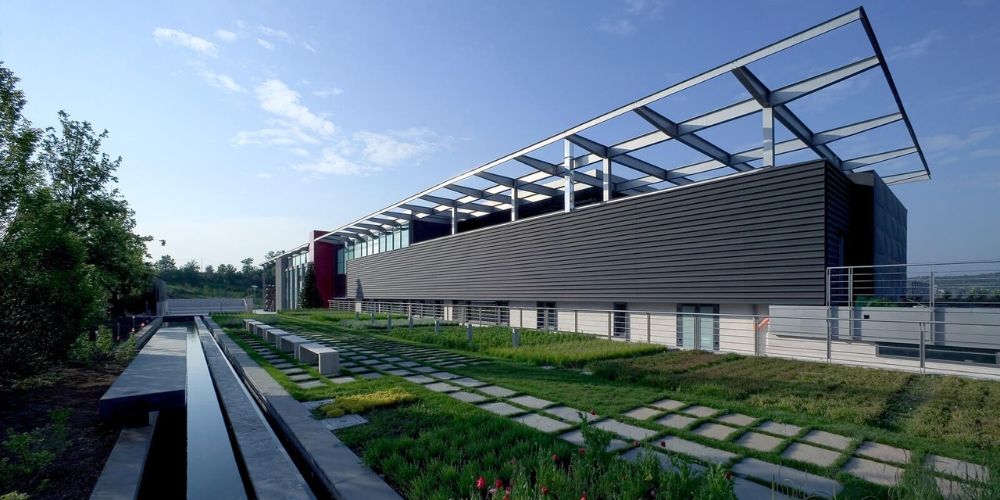
Founded in 1986, the Irpinian winery Feudi di San Gregorio valorises indigenous Campania grape varieties such as Greco, Fiano, Falanghina and Aglianico. The company's commitment to the local ecosystem is essential to its identity. Feudi di San Gregorio greatly emphasises biodiversity conservation and an eco-friendly approach to production. Additionally, the winery's passion for innovation and the blending of seemingly disparate disciplines, such as art and design, is evident in every aspect of its operations. This philosophy is reflected in the contributions of renowned designers and creatives who have shaped the image of Feudi di San Gregorio. From the packaging to the architecture of the wine cellar, conceived as a cultural and sharing space, every detail has been attended to with precision.
Find out more about Feudi di San GregorioVilla Raiano, Cerreto
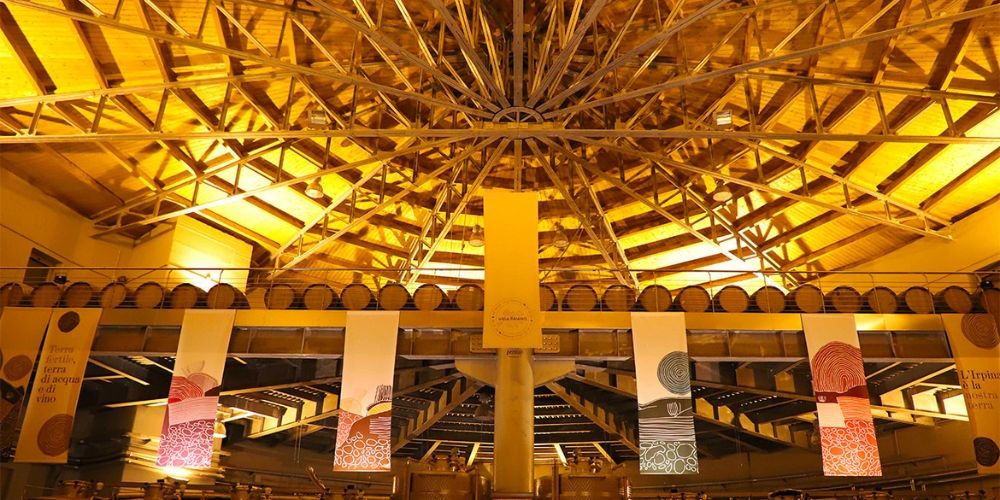
Villa Raiano offers a glimpse into the story of Irpinia through a selection of wines produced by tradition. The vineyards - twenty-seven varieties unique to this portion of Campania - are cultivated using certified organic methods to make renowned DOCGs such as Grego di Tufo, Fiano di Avellino, Taurasi, and Aglianico. The Basso family established Villa Raiano in 1996, creating a modern winery on the picturesque Sabato river valley in San Michele di Serino, Avellino. Oak, chestnut forests, and ancient vineyards surround the winery's elegant and harmonious building. The complex offers guests and visitors a delightful experience, from the romantic panoramic terrace to the sophisticated wine cellar.
Find out more about Villa RaianoMastroberardino, Atripalda
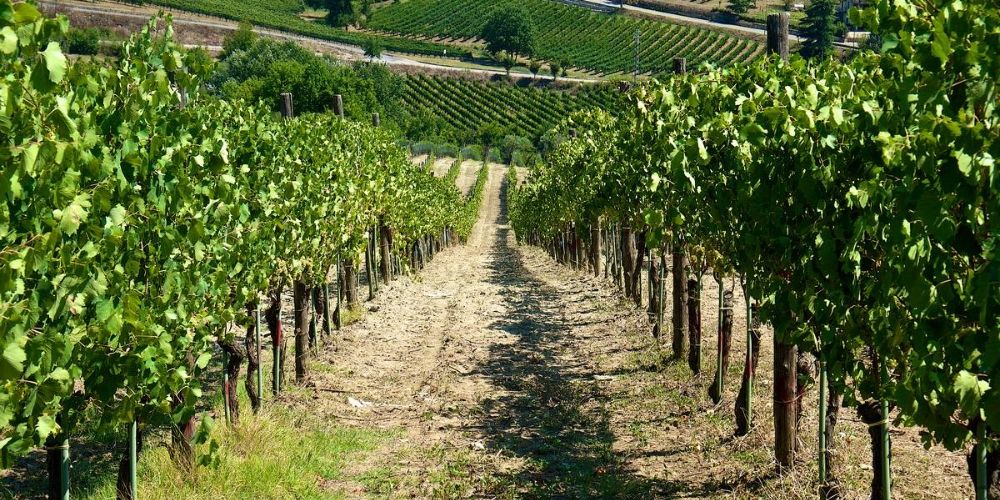
An ancient history carried on with love and dedication generation after generation. The Mastroberardino family has been involved in grape cultivation and winemaking since the 18th century, although the winery was not officially registered with the Avellino Chamber of Commerce until 1878. After almost three centuries and ten generations, the company is now considered a symbol of Campania and Italian wine culture. Over the years, Mastroberardino has been a staunch promoter of traditional Irpinia viticulture. And from their storied headquarters in Atripalda, where the original cellars still stand, their expertise has expanded to the entire Mastroberardino ecosystem, including guided vineyard tours, tasting itineraries, and relaxation offerings.
Find out more about MastroberardinoMustilli, Sant'Agata de' Goti
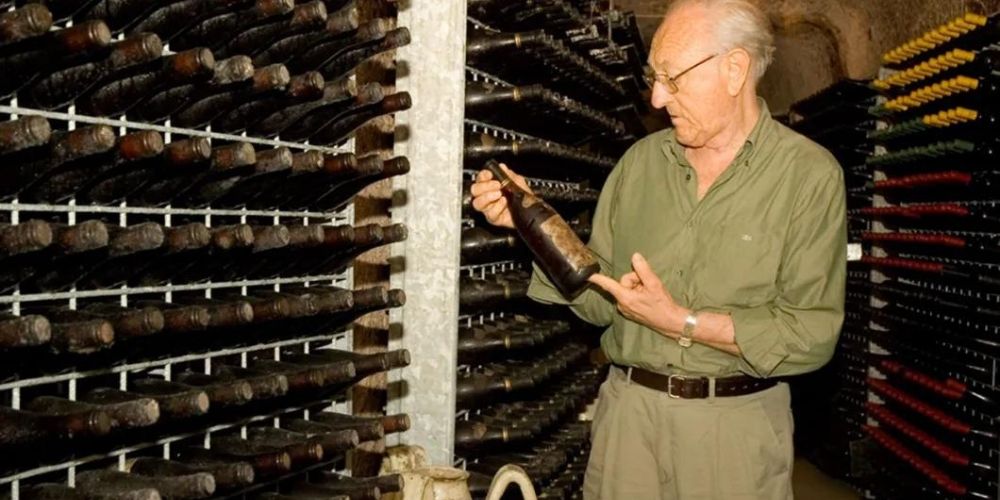
About the second half of the 1970s, Leonardo Mustilli canonised Campania's white wine par excellence: Falanghina. This wine, made from one of the region's oldest and most widespread vines, has a close association with the Sannio area and the Mustilli family. The company's operational base is in the beautiful medieval village of Sant'Agata de' Goti, nestled on the slopes of Mount Taburno. Today, the winery is run by Leonardo's daughters, Paola and Anna Chiara. Palazzo Rainone, in the heart of the historic centre of Sant'Agata, is where the tradition of good drinking is taken to the next level of hospitality, with the agritourism, restaurant and wine bar in the ancient cellar dug out of tuff stone.
Find out more about MustilliVilla Matilde Avallone, Cellole
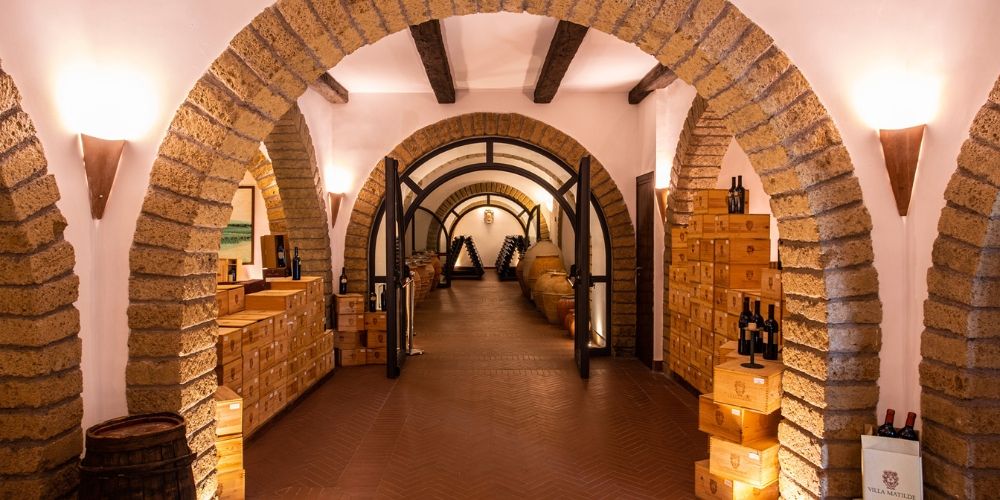
One of the best wineries in Campania, Villa Matilde Avallone, has been producing elite wines since the 1960s. The founder, lawyer Francesco Paolo Avallone, pushed his passion for ancient wines towards an admirable feat: recreating the legendary Falerno of classical literature. A long and meticulous search led him to identify the 'surviving' vines to make the Vinum Falernum described by Pliny, Virgil and Horace. That same spirit of curiosity, innovation and research has been employed ever since to develop sustainable techniques for vineyard care and land management. And with the Zero Emission project, the commitment is aimed at minimising environmental impact.
Find out more about Villa Matilde AvalloneCasa Setaro, Trecase
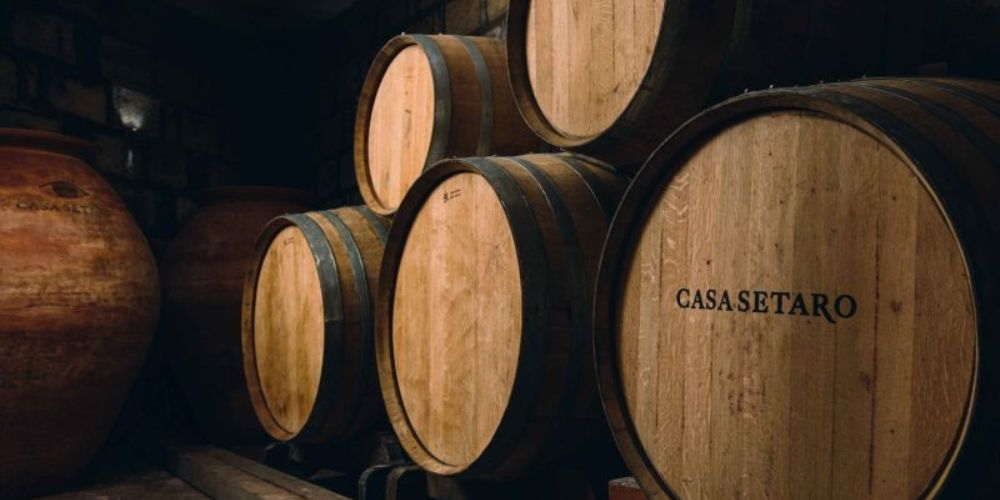
Casa Setaro is a family-owned business in Trecase, within the Vesuvius National Park. From grapevine to bottling, the vineyard is carefully tended to with a strong focus on tradition and environment, and farming is entirely organic, without chemical fertilizers and herbicides. The winery boasts a selection of the most representative samples of the Vesuvian region. The property spreads over a vast area of 12 hectares, extending between the gulf and the volcano. Its unique soil characteristics give rise to the distinct flavours and aromas of the wine produced here. The experience at Casa Setaro is set amidst rows of vines and olive trees, with tasting sessions, expert-guided vineyards, and cellar tours.
Find out more about Casa SetaroCantine Antonio Mazzella, Ischia
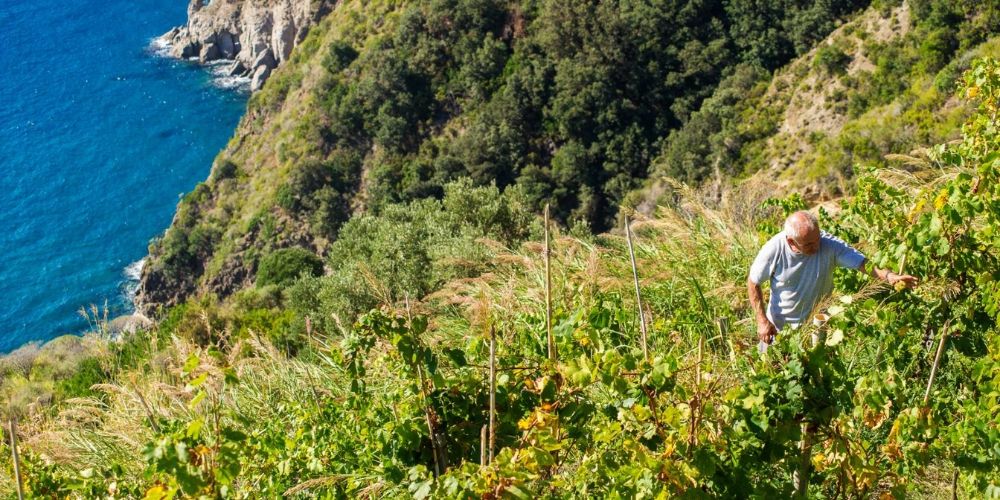
Some of the most appreciated and award-winning bottles on the Italian wine scene come from a small winery on Ischia island, Cantine Antonio Mazzella. The ritual has been more or less the same since 1940. In an area as generous as challenging (it's no coincidence that the term 'heroic viticulture' is used to describe the local cultivation), grapes are carefully hand-picked, crushed and pressed. The must ripens in ancient tufa cellars until it's finally loaded onto small boats to reach the historic headquarters in the village of Campagnano. By appointment, visitors can arrange a tasting at the winery and experience the unique flavours of the volcanic island wine.
Find out more about Cantine Antonio MazzellaBosco de' Medici, Pompei
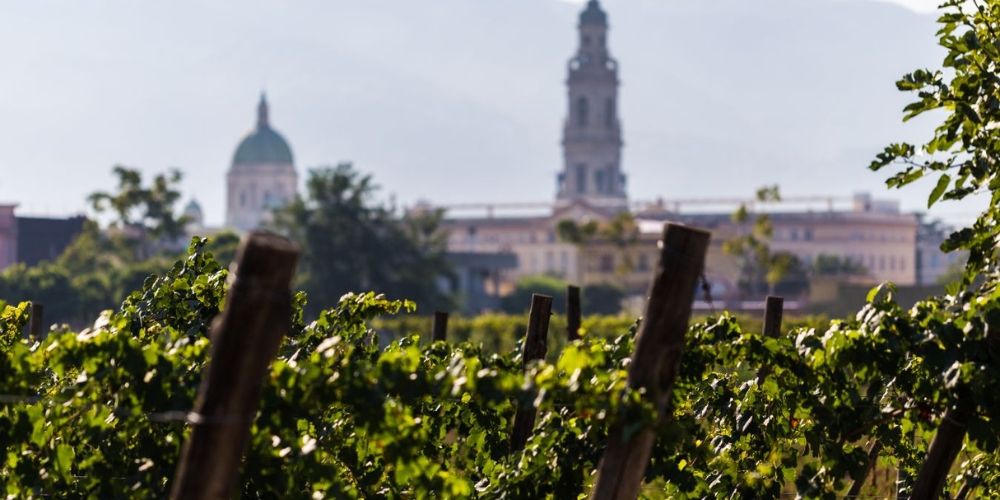
The love for wine was born in the early 20th century amid the vineyards of Pompeii, not far from the UNESCO World Heritage ruins. The passion of Grandpa Raffaele, who was the first to try his hand at winemaking, served as the starting point for this journey. The legacy of his dream has spanned generations, giving rise to the Bosco de' Medici Agricultural Company in 1996 and the Winery in 2017. The latter building, used for production and to welcome visitors, houses the cellars, a barrels room, tasting areas, and a restaurant. On land once owned by the illustrious Florentine family, the thousand-year-old tradition of Vesuvian wine is sustained through experimentation, sustainability, and respect for the uniqueness of the territory.
Find out more about Bosco de' MediciCantine Marisa Cuomo, Furore
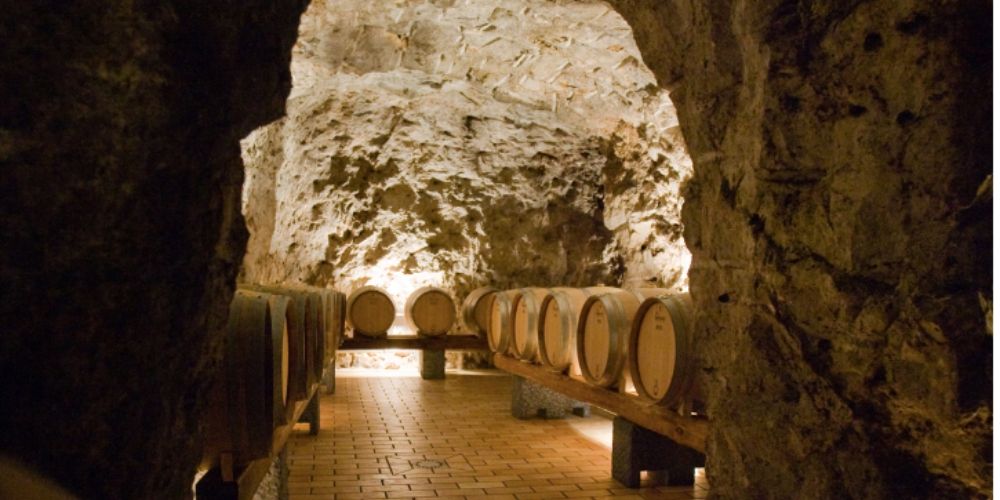
Nestled amidst Furore's rugged coast and azure waters, Cantine Marisa Cuomo has successfully bottled local winemakers' ancient knowledge since 1980. The result is a selection of bold wines produced under extreme conditions and in impervious areas with grapes tempered by the sun and the sea of the Amalfi Coast. Despite the challenges of cultivating on rocky terrain, the winery has produced a fine selection of bottles that have earned numerous accolades from the Italian Sommelier Association and Gambero Rosso, among others. The wine is carefully stored in a cantina carved out of rock, 500 metres above sea level. Book your appointment online to visit the vineyards and have a wine-tasting session.
Find out more about Cantine Marisa CuomoSan Salvatore 1988, Cilento
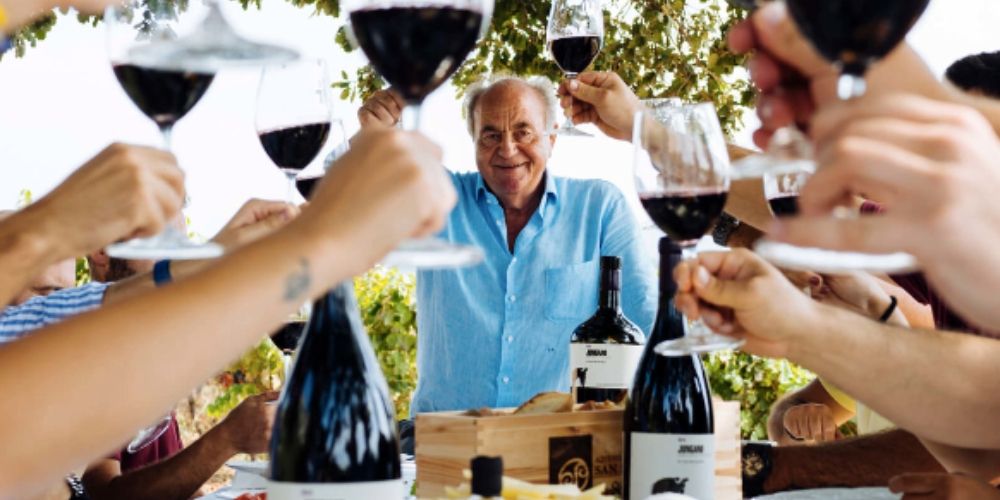
1988 is not the birth year but a symbol of infinity, representing the fusion of the past and future. The San Salvatore 1988 winery project, born in 2005, is centered around preserving and enhancing the rich history and traditions of Cilento, a place with immense cultural value. The owner, Giuseppe Pagano, achieves this goal by producing unmistakable wines created through the profound knowledge of the area's biodiversity. Cultivation is slow and follows the rhythms Mother Nature imposes. San Salvatore places environmental protection at the forefront, aiming to promote a new vision of Cilento that is inclusive and dynamic. San Salvatore's signature wines, representative of the souls of different terroirs, ambassadors not only of taste but of the essence of the territory, are multi-awarded and present in lists of the best wines around the world.
Find out more about San Salvatore 1988About the author
Written on 25/10/2023


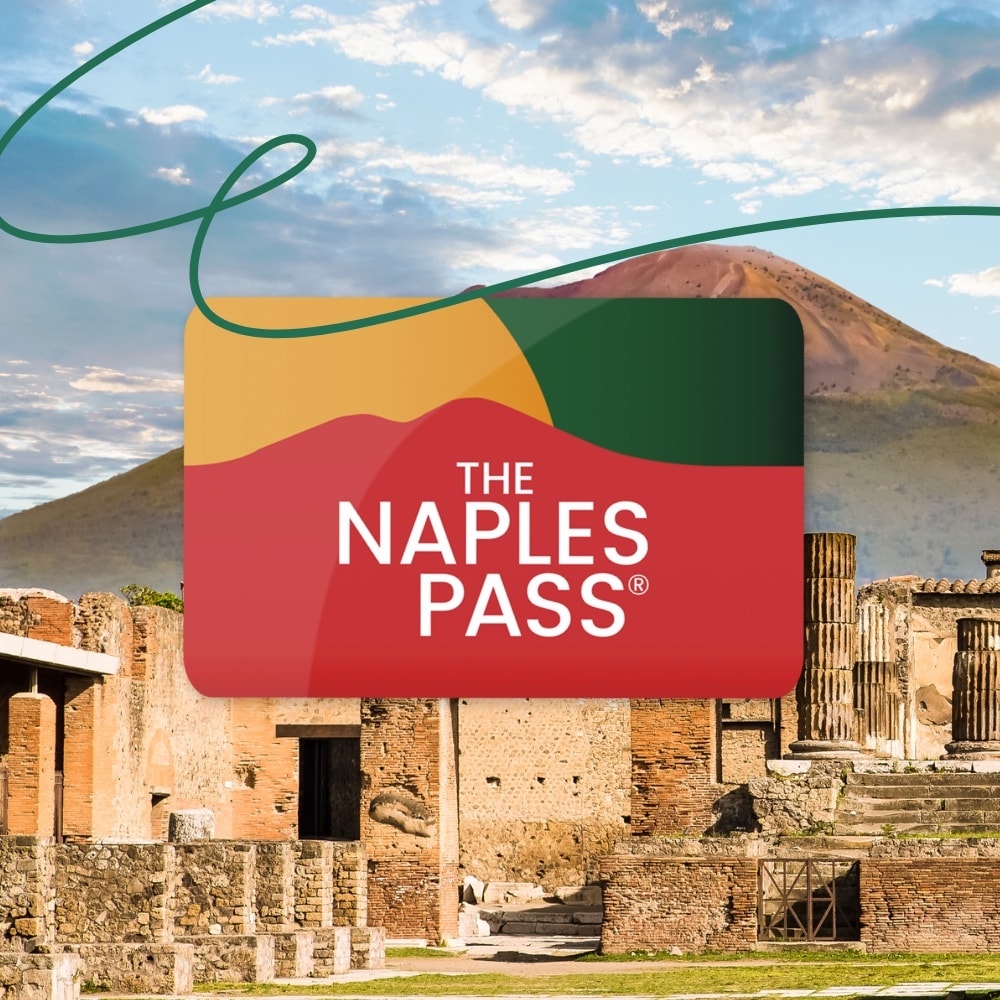
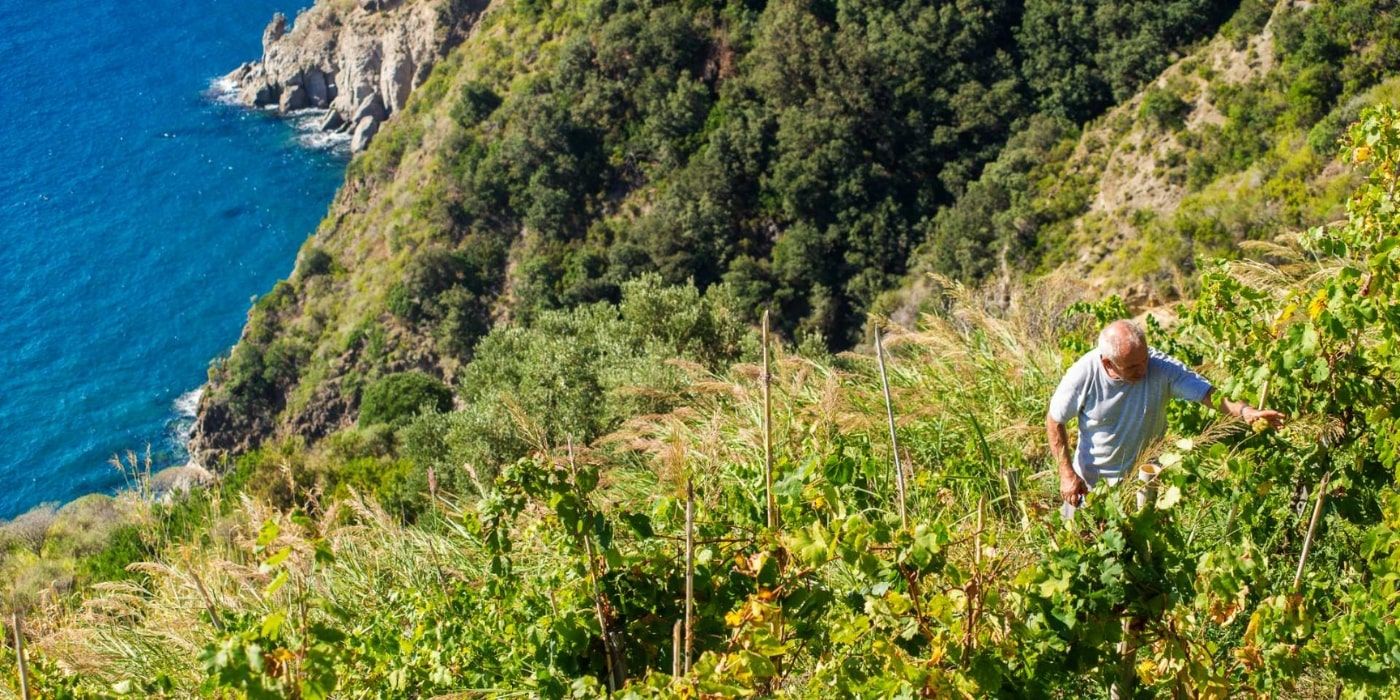
Lorena Calise
Discover the Top 10 Best Wineries in Campania with our selection of Bacchus-approved cellars.